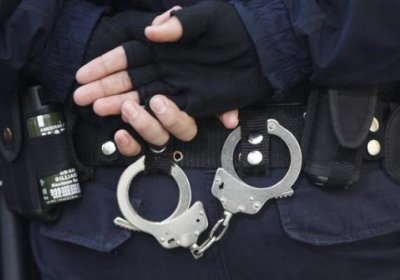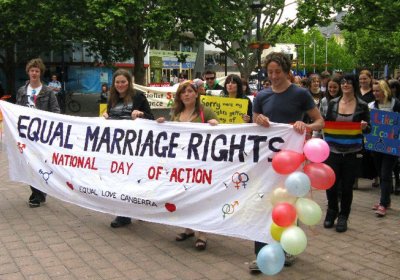The second suicide in little more than two months took place at Villawood detention centre on the night of November 15.
Ahmad Al Akabi, 41, was found by fellow detainees hanged in a bathroom.
After spending more than a year in the Christmas Island and Villawood detention centres, his asylum application had been rejected twice under the off-shore processing system that was found to be invalid in a recent High Court decision.
Australia
Aboriginal workers in the government’s $672 million Strategic Indigenous Housing and Infrastructure Program (SIHIP) are working for what amounts to half the dole plus rations. However, these workers are still being recorded as contributing to SIHIP meeting its employment target, Crickey.com.au said.
SIHIP is the housing project announced by the federal government in 2008. The project was to provide much needed housing for Aboriginal populations in remote areas of the Northern Territory.
The big four banks are squealing at a Greens plan to introduce bank regulation legislation to parliament and at a class action being considered against banks that gouge borrowers through variable interest rate loans.
The Commonwealth Bank (CBA), Westpac, ANZ and the National Australia Bank hiked interest rates above the 0.25% rise declared by the Reserve Bank of Australia (RBA) on November 3. The Australian Institute said on November 15 the rise would give the banks $1.2 billion more profit.
Triple J did a profile on youth unemployment in Wollongong that was posted on the ABC’s website on October 29.
Five young people were interviewed about the difficulties in finding work, and the reasons for the high youth unemployment rate.
These are the same problems faced by young people all over Australia: a reduction in the number of apprenticeships available, the effects of the financial crisis, the lack of experience young people have and how no-one is willing to give them a chance.
There has been a lot of discussion about the problems within Australia’s national A-League football (“soccer”) competition, with some even fearing that it is on the verge of collapse.
Maybe that won’t happen, but there are signs that things aren’t looking good. In September, Newcastle Jets became the latest club to be provided with an emergency loan. The league’s governing body, Football Federation Australia (FFA) agreed to provide short term financial assistance so the club could pay its players.
When the Victorian Parliament decriminalised abortion two years ago, the battle was finally over, right? Then why is the Fertility Control Clinic in East Melbourne still targeted by anti-abortion zealots? And why, after five years, has Melbourne City Council started harassing clinic defenders, potentially handing a victory to those same zealots?
Western Australia’s proposed “stop-and-search” laws look dead in the water after the National Party opposed the bill on November 11.
The proposed laws were to expand WA police powers to search people without having to provide grounds for suspicion. The laws would also allow the police minister to declare areas in which police had the power to arbitrarily stop and search people.
The Australian National University’s (ANU) sexuality department not only provides an invaluable support service to lesbian, gay, bisexual, transgender, intersex and queer students on campus (LGBTIQ), it is also unashamedly political.
For example, it has thrown its weight behind the campaign for equal marriage rights.
So perhaps it is not surprising that the department has been challenged by homophobia on campus.
In May during Pride Week, 500 posters were ripped down.
Green Left Weekly spoke to some of the progressive candidates running in the November 27 Victorian state elections.
* * *
Stephen Jolly
Stephen Jolly is the Socialist Party candidate for Richmond. He was elected to the City of Yarra council in 2004. He first came to prominence in the campaign to reopen Richmond Secondary College. He spoke to GLW’s Narendra Mohan Kimmalapati.
What is your platform for the election?
The Organisation for Economic Cooperation and Development’s (OECD) Economic Survey of Australia, released on November 15, called for an increase in the rate and scope of the goods and services tax (GST) and a cut in business taxes.
The rich countries’ economic club also called for higher road tolls, greater labour productivity and a price on carbon.
The OECD’s annual survey congratulated the Labor government for avoiding recession during the global financial crisis but also demanded it undertake further “structural reforms to strengthen productivity”.
Remembrance Day, on November 11, was celebrated again this year in the Australian media with pictures of red poppies and flag-draped coffins and historic photos of Australian soldiers who gave “the ultimate sacrifice” from the human-made wasteland of Flanders to the stony deserts of Afghanistan.
Paying tribute to the ten soldiers killed this year in the long war in Afghanistan, Governor-General Quentin Bryce said that Australians were good at remembering: “We seem to know what we ought to hold onto and what is best let go.”
One of Australia’s richest men, mining magnate Andrew “Twiggy” Forrest, used Australian television on October 24 to send an address to the nation about his “Generation One” campaign, which aims to “close the gap” between Indigenous and non-Indigenous Australians.
I don’t have any air-time, but I do have page space. This is my address to Twiggy.
* * *
Dear Mr Forrest,
I think we have something in common (yes, I’m surprised too).
- Previous page
- Page 850
- Next page











